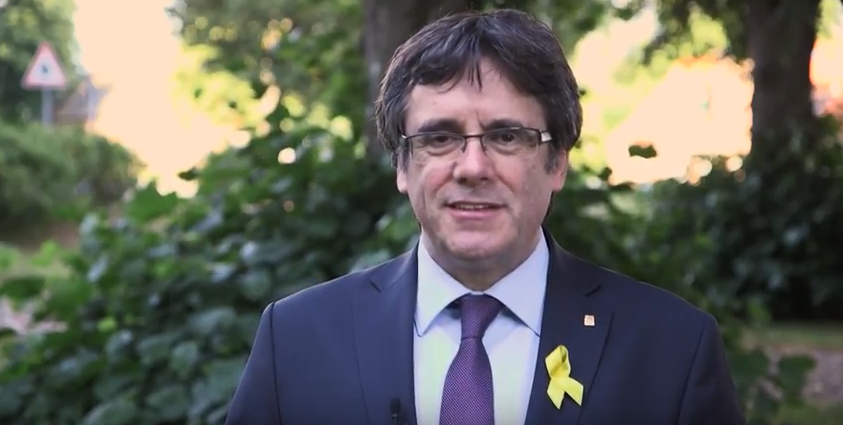13.07.2018 - 10:54
|
Actualització: 13.07.2018 - 12:54
The Spanish judge in charge of the independence case, Pablo Llarena, is considering withdrawing the extradition request he issued against Carles Puigdemont. This, after the German judiciary decided to reject rebellion charges against him and only considering his extradition for misuse of funds.
That means that Puigdemont cannot be tried for rebellion in Spain, but at the same time eight of his former ministers will face courts for this reason, something which might seem contradictory. For this reason, some Catalan and Spanish media suggest that judge Llarena might withdraw the European arrest warrant against him.
The judge already did it in December with another extradition request for him and three former ministers in Belgium only one day after the Belgian prosecutor’s office had also rejected the most serious crimes against Puigdemont and the other exiled officials.
Yet on March 23, the Supreme Court reissued European arrest warrants against the pro-independence leaders abroad.
Taking the case to EU court
After the decision in Germany, Spain’s judiciary might take another path, say some reports: taking the case to the Court of Justice of the European Union (CJEU). This option was already discussed in April, when the judges in Schleswig-Holstein first rejected the rebellion charges.
Requesting a preliminary ruling to this EU court is a legal procedure for the courts of member states to question the interpretation or validity of an EU law. Should the Supreme Court request the ruling, Puigdemont’s extradition would be immediately frozen until the issue is resolved, something that could take up to 16 months.
German Constitutional Court
If the judge Llarena decided to not take any action, the extradition would be executed – unless Puigdemont’s defense makes a move. One of his top lawyers, Jaume Alonso-Cuevillas, said they would appeal at the German Constitutional Court. In an interview with the Catalan public TV he said that “it might be a denial of the extradition in two steps.”
He referred to a first step being the rejection of rebellion by the court in Schleswig-Holstein on Thursday, and the second one potentially by the German Constitutional Court in Karlsruhe rejecting the extradition also for misuse of funds, the only crime not rejected so far in Germany.


